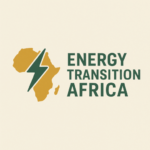On a quiet morning last month, disaster struck in Zambia’s Copperbelt. A tailings dam at a Chinese-owned copper mine burst, releasing toxic sludge into the Kafue River. Communities downstream woke to contaminated water, dead fish, and poisoned crops. This is not just a Zambian tragedy; it’s a wake-up call for Africa’s energy transition.
The Disaster that Shook Zambia
The mine in question was extracting copper, a critical mineral essential for solar panels, wind turbines, and electric vehicles. As the world rushes towards decarbonization, Africa has become the go-to source for these minerals. But incidents like this expose a darker side of the green transition: environmental neglect and human costs.
According to the Zambian Environmental Management Agency (ZEMA), the disaster has affected over 30,000 people, contaminated farmland, and devastated fisheries in one of the country’s most fertile regions.
A Pattern of Neglect
This isn’t an isolated incident. Across Africa, mining operations are expanding to meet global demand for critical minerals, often with lax oversight and weak enforcement of environmental regulations. From cobalt mines in the DRC to graphite extraction in Madagascar, the pattern is clear: profits prioritised over people.
Zambia’s mining disaster underscores a critical flaw in Africa’s energy transition: the push for renewables cannot be built on unsafe practices that mirror the extractivist models of the fossil fuel era.
Community Impacts: Who Pays the Price?
For the people living along the Kafue River, the disaster isn’t just an environmental crisis; it’s a humanitarian one. Contaminated water sources have forced communities to rely on expensive bottled water. Crops are failing. Fishermen have lost their livelihoods.
As highlighted in our recent blog, “Africa’s New Scramble: The High Cost of Critical Minerals Without Justice”, communities often bear the brunt of extractive projects while reaping none of the benefits.
The Regulatory Challenge
Zambia’s environmental laws are robust on paper, but enforcement remains weak. Inspections are infrequent. Penalties for violations are often minimal. When global companies exploit these gaps, disasters become inevitable.
This calls for stronger regulatory frameworks, with real consequences for negligence. Africa’s governments must demand higher environmental standards from foreign investors, and local communities must have a voice in project approvals and monitoring.
Ethical Mining or Green Colonialism?
As demand for copper, cobalt, and other critical minerals soars, the risk of green colonialism grows. Western and Chinese companies are racing to lock in mineral supplies, often sidelining African voices. Without transparent contracts, local processing, and community benefits, Africa risks becoming just a raw material hub in the global energy economy.
The Way Forward: Can We Build a Safe Transition?
Africa’s clean energy future hinges on ethical practices. This means:
- Mandatory environmental and social impact assessments before project approval.
- Free, Prior and Informed Consent (FPIC) from affected communities.
- Local value addition and beneficiation to maximise economic benefits.
- Robust environmental monitoring with independent oversight.
Mission 300 and other electrification initiatives can’t succeed if their foundations are tainted by unsafe mining. The transition must not sacrifice African lives and lands in the name of global decarbonization.
Final Thought: A Wake-Up Call for Africa
Zambia’s mining disaster is a stark reminder that clean energy can’t be built on dirty practices. If Africa is to lead in the global energy transition, it must start by protecting its people and environment.
Because a future where renewable energy powers the world, but leaves African communities poisoned and powerless, is no future at all.
